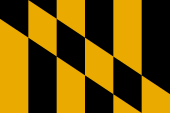
The Continental Congress was a series of legislative bodies, with some executive function, for the thirteen colonies of Great Britain in North America, and the newly declared United States before, during, and after the American Revolutionary War. The Continental Congress refers to both the First and Second Congresses of 1774–1781 which, at the time, also described the Congress of the Confederation of 1781–1789, which operated as the first national government until being replaced following ratification of the U.S. Constitution. The Continental Congress represented the 13 colonies and then the new United States from 1774 until 1789. The Congress met predominantly at Independence Hall in Philadelphia, though it was relocated temporarily on several occasions during the Revolutionary War and the fall of Philadelphia.
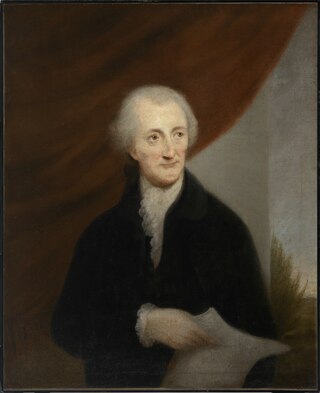
George Read was an American politician from New Castle in New Castle County, Delaware. He was a Continental Congressman from Delaware, a delegate to the U.S. Constitutional Convention of 1787, president of Delaware, and a member of the Federalist Party. In addition, Read served as U.S. Senator from Delaware and chief justice of Delaware.

Thomas Johnson was an 18th-century American lawyer, politician, and patriot. He was a delegate to the First Continental Congress in 1774, where he signed the Continental Association; commander of the Maryland militia in 1776; and elected first (non-Colonial) governor of Maryland in 1777. Throughout his career, Johnson maintained a personal and political friendship with George Washington, who gave him a recess appointment as an associate justice of the Supreme Court in August 1791. He served only briefly, resigning in January 1793, citing health issues.

The Second Continental Congress was the late-18th-century meeting of delegates from the Thirteen Colonies that united in support of the American Revolution and its associated Revolutionary War that established American independence from the British Empire. The Congress created a new country that it first named the United Colonies, and in 1776, renamed the United States of America. The Congress began convening in Philadelphia, on May 10, 1775, with representatives from 12 of the 13 colonies, after the Battles of Lexington and Concord. It succeeded the First Continental Congress, which also met in Philadelphia from September 5 to October 26, 1774. The Second Congress functioned as the de facto national government at the outset of the Revolutionary War by raising militias, directing strategy, appointing diplomats, and writing petitions such as the Declaration of the Causes and Necessity of Taking Up Arms and the Olive Branch Petition. All 13 colonies were represented by the time the Congress adopted the Lee Resolution, which declared independence from Britain on July 2, 1776, and the Congress unanimously agreed to the Declaration of Independence two days later.

Matthew Tilghman was an American planter, and Revolutionary leader from Maryland. He served as a delegate to the Continental Congress from 1774 to 1776, where he signed the 1774 Continental Association.
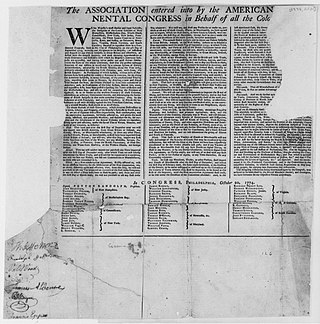
The Continental Association, also known as the Articles of Association or simply the Association, was an agreement among the American colonies adopted by the First Continental Congress on October 20, 1774. It called for a trade boycott against British merchants by the colonies. Congress hoped that placing economic sanctions on British imports and exports would pressure Parliament into addressing the colonies' grievances, in particular, by repealing what were referred to as the Intolerable Acts.

The committees of correspondence were, prior to the outbreak of the American Revolutionary War, a collection of American political organizations that sought to coordinate opposition to British Parliament and, later, support for American independence. The brainchild of Samuel Adams, a Patriot from Boston, the committees sought to establish, through the writing of letters, an underground network of communication among Patriot leaders in the Thirteen Colonies. The committees were instrumental in setting up the First Continental Congress, which met in Philadelphia.

The Suffolk Resolves was a declaration made on September 9, 1774, by the leaders of Suffolk County, Massachusetts. The declaration rejected the Massachusetts Government Act and resulted in a boycott of imported goods from Britain unless the Intolerable Acts were repealed. The Resolves were recognized by statesman Edmund Burke as a major development in colonial animosity leading to adoption of the United States Declaration of Independence from the Kingdom of Great Britain in 1776, and he urged British conciliation with the American colonies, to little effect. The First Continental Congress endorsed the Resolves on September 17, 1774, and passed the similarly themed Continental Association on October 20, 1774.

The Maryland Constitution of 1776 was the first of four constitutions under which the U.S. state of Maryland has been governed. It was that state's basic law from its adoption in 1776 until the Maryland Constitution of 1851 took effect on July 4 of that year.
In the American Revolution, committees of correspondence, committees of inspection, and committees of safety were different local committees of Patriots that became a shadow government; they took control of the Thirteen Colonies away from royal officials, who became increasingly helpless.

The Virginia Conventions have been the assemblies of delegates elected for the purpose of establishing constitutions of fundamental law for the Commonwealth of Virginia superior to General Assembly legislation. Their constitutions and subsequent amendments span four centuries across the territory of modern-day Virginia, West Virginia and Kentucky.
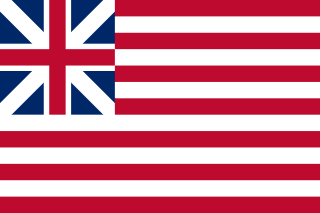
The United Colonies was the name used by the Second Continental Congress in Philadelphia to describe the emerging nation comprising the Thirteen Colonies in 1775 and 1776, before and as independence was declared. Continental currency banknotes displayed the name 'The United Colonies' from May 1775 until February 1777, and the name was being used as a colloquial phrase to refer to the colonies as a whole before the Second Congress met, although the precise place or date of its origin is unknown.
The New York Provincial Congress (1775–1777) was a revolutionary provisional government formed by colonists in 1775, during the American Revolution, as a pro-American alternative to the more conservative New York General Assembly, and as a replacement for the Committee of One Hundred. The Fourth Provincial Congress, resolving itself as the Convention of Representatives of the State of New York, adopted the first Constitution of the State of New York on April 20, 1777.
The Provincial Congresses were extra-legal legislative bodies established in ten of the Thirteen Colonies early in the American Revolution. Some were referred to as congresses while others used different terms for a similar type body. These bodies were generally renamed or replaced with other bodies when the provinces declared themselves states.

The Massachusetts Provincial Congress (1774–1780) was a provisional government created in the Province of Massachusetts Bay early in the American Revolution. Based on the terms of the colonial charter, it exercised de facto control over the rebellious portions of the province, and after the British withdrawal from Boston in March 1776, the entire province. When Massachusetts Bay declared its independence in 1776, the Congress continued to govern under this arrangement for several years. Increasing calls for constitutional change led to a failed proposal for a constitution produced by the Congress in 1778, and then a successful constitutional convention that produced a constitution for the state in 1780. The Provincial Congress came to an end with elections in October 1780.
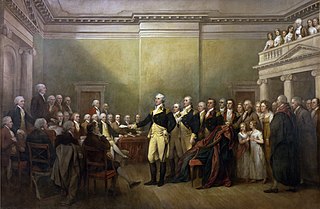
Then Province of Maryland had been a British / English colony since 1632, when Sir George Calvert, first Baron of Baltimore and Lord Baltimore (1579-1632), received a charter and grant from King Charles I of England and first created a haven for English Roman Catholics in the New World, with his son, Cecilius Calvert (1605-1675), the second Lord Baltimore equipping and sending over the first colonists to the Chesapeake Bay region in March 1634. The first signs of rebellion against the mother country occurred in 1765, when the tax collector Zachariah Hood was injured while landing at the second provincial capital of Annapolis docks, arguably the first violent resistance to British taxation in the colonies. After a decade of bitter argument and internal discord, Maryland declared itself a sovereign state in 1776. The province was one of the Thirteen Colonies of British America to declare independence from Great Britain and joined the others in signing a collective Declaration of Independence that summer in the Second Continental Congress in nearby Philadelphia. Samuel Chase, William Paca, Thomas Stone, and Charles Carroll of Carrollton signed on Maryland's behalf.
Captain William Bowie was an early colonist in the Province of Maryland and an American Revolutionary, a member of the Assembly of Freemen, and a delegate to the Annapolis Convention (1774–1776).

The 27 grievances is a section from the United States Declaration of Independence. The Second Continental Congress's Committee of Five drafted the document listing their grievances with the actions and decisions of King George III with regard to the Colonies in North America. The Second Continental Congress voted unanimously to adopt and issue the Declaration of Independence on July 4, 1776.

Tory Act of 1776 was penned as seven resolutions passed by the Second Continental Congress in Philadelphia, Pennsylvania on January 2, 1776. The legislative resolutions emphasized the American Patriots opposing sentiments towards the colonial political factions, better known as British America's Tories or Royalists.
